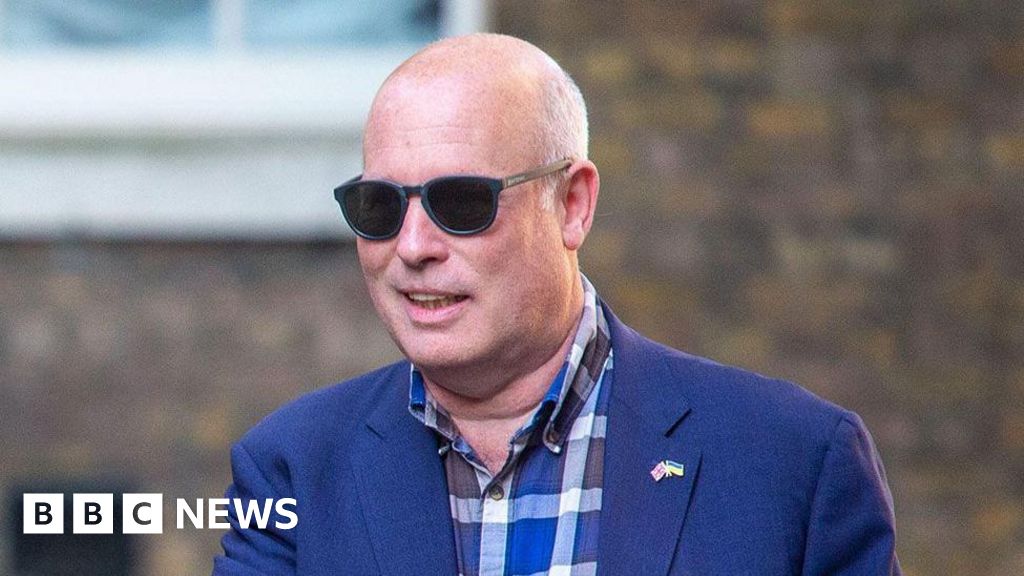This article is an on-site version of our Inside Politics newsletter. Subscribers can sign up here to get the newsletter delivered every weekday. If you’re not a subscriber, you can still receive the newsletter free for 30 days
Good morning from Birmingham. This is a very odd conference in many ways, in that the Tory party is in a state of flux, yet, barring some kind of unexpected shock, the race to become the next Conservative leader is very predictable.
Inside Politics is edited by Georgina Quach. Read the previous edition of the newsletter here. Please send gossip, thoughts and feedback to insidepolitics@ft.com
Badenough for you
The big picture at Conservative party conference is that unless something changes, the next party leader will be Robert Jenrick. Tory MPs will vote next week to narrow down the field to a final pair, who will then be put before the members in an online ballot, with the result announced on November 2.
As ever with the Tory party leadership, there are really two routes to the membership — the establishment lane and the rightwing lane. Jenrick, who resigned as immigration minister from Rishi Sunak’s cabinet, has done a remarkably effective job of locking up that rightwing lane. And the polls suggest he will defeat almost anyone who might come up the establishment lane.
Kemi Badenoch, meanwhile, would beat anyone she might face in the vote by Conservative party members, but she has no guarantee of reaching that stage. The former business secretary sparked confusion over her suggestion that maternity pay was “excessive”, which she later rowed back on but appeared to double down on her position yesterday, signalling that the UK’s minimum wage and maternity pay rules are among regulations “overburdening businesses”. She is struggling to get enough support among MPs and the gaffes of recent days have, if anything, aggravated her difficulties among her parliamentary colleagues.
Meanwhile, James Cleverly and Tom Tugendhat, the candidates who are seen as pitching for votes from the left of the party, are not going to beat Jenrick unless something changes to shift opinion among party members. Jenrick’s claim in his campaign video that UK special forces are “killing rather than capturing terrorists” was criticised by his rivals — with one military official telling the FT it was an “outrageous accusation” — but it’s the kind of message that Conservative activists want to hear.
Nothing Badenoch has done has won over wavering MPs, and thus far nothing Tugendhat nor Cleverly have done has changed the minds of party members. It may be that one of the 20-minute speeches tomorrow can change the dynamic of the contest — but it is more likely, I think, that the Tory party is just in a holding pattern until Jenrick takes over.
Now try this
This week, I mostly listened to Katy Perry’s 143 while writing my column.
Top stories today
-
Case steps down | Simon Case, Britain’s top civil servant, quit yesterday after four years in the job and a job ad was swiftly posted for the £200,000-a-year role. George Parker takes us through potential successors.
-
Ofcom: ‘we have got some pretty strong powers’ | Britain’s media regulator will take “strong action” against tech companies that break new rules on content moderation, even if it has limited powers to stop the spread of lies online, the agency’s head has told the FT.
-
Donor revealed | Robert Jenrick is facing further questions about donations totalling £75,000 to his Conservative leadership campaign from a company that was loaned money via a tax haven, after businessman Phillip Ullmann revealed himself to be the ultimate source of the funding, reports The Guardian’s Rowena Mason.
-
Scores on the doors | In a head-to-head the Conservative membership would choose Kemi Badenoch by 52 per cent to Robert Jenrick’s 48 per cent, according to a YouGov/Sky News poll of 802 Tory members conducted over nine days to Sunday night. The gap was 18 points just six weeks ago, showing a surge in support for Jenrick.












































































































































You must be logged in to post a comment Login